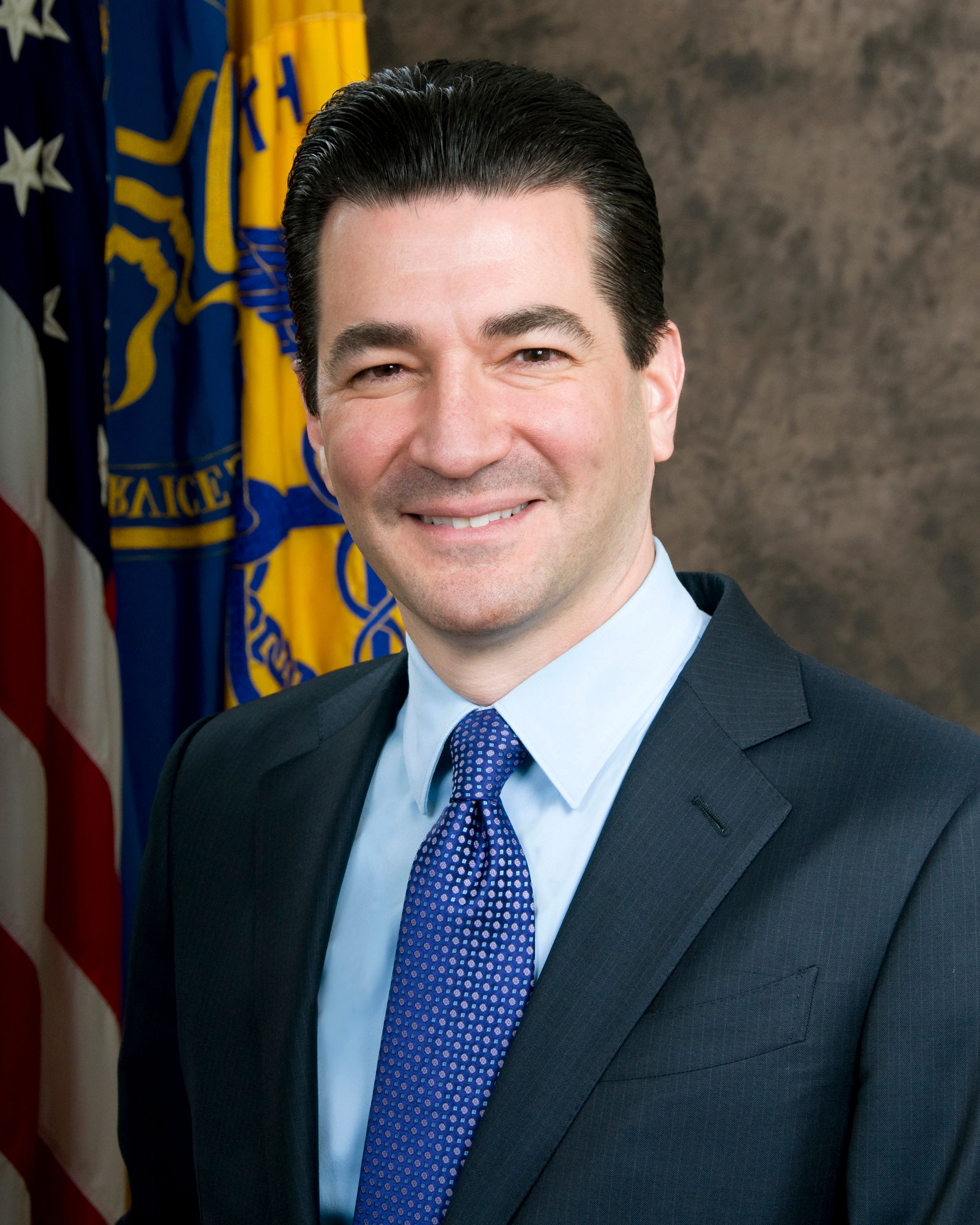- Safety & Recalls
- Regulatory Updates
- Drug Coverage
- COPD
- Cardiovascular
- Obstetrics-Gynecology & Women's Health
- Ophthalmology
- Clinical Pharmacology
- Pediatrics
- Urology
- Pharmacy
- Idiopathic Pulmonary Fibrosis
- Diabetes and Endocrinology
- Allergy, Immunology, and ENT
- Musculoskeletal/Rheumatology
- Respiratory
- Psychiatry and Behavioral Health
- Dermatology
- Oncology
Gottlieb optimistic about COVID-19 end after positive Moderna vaccine results
The COVID-19 pandemic could “effectively” be ended in 2021, said Scott Gottlieb, MD, former FDA commissioner, after Moderna announced very positive results from its vaccine trial.
Moderna said Monday that its Phase 3 study of mRNA-1273, its vaccine candidate against COVID-19, has an efficacy of 94.5%. Its COVE study enrolled more than 30,000 participants in the U.S.
Pfizer and BioNTech’s first interim analysis also found that their vaccine candidate, BNT162b2, demonstrated a 90% efficacy rate against COVID-19 in participants without prior evidence of SARS-CoV-2 infection.
Related: Pfizer COVID-19 vaccine results positive, but questions remain
Pfizer expects the FDA to grant emergency approval for the vaccine later this month.
"If these full data sets hold, when the full data comes out, we may have two highly effective vaccines against Covid," Gottlieb, a board member of Pfizer, said on CNBC’s “Squawk Box."
Scott Gottlieb

"Once we get these vaccines in sufficient qualities heading in 2021, the combination of the fact that a lot of the population will have already had COVID, combined with the fact that we'll be vaccinating the public with a highly effective vaccine, we could effectively end this pandemic in 2021 with our technology," Gottlieb said.
Michael Breen, Ph.D., director of infectious diseases and ophthalmology at GlobalData, praised the efficacy date for both Moderna and Pfizer’s vaccine candidates.
Related: Pfizer: COVID-19 vaccine likely ready late November
“While the efficacy of Moderna’s offering is slightly higher than that reported for Pfizer/BioNTech’s candidate, the more pressing point is the fact that these vaccines achieved this outcome at all. One candidate seeing significantly more impressive results than the FDA’s usual bar was great news, but two is unprecedented,” Breen said in a press release.
One key difference between the vaccines is that Moderna’s vaccine does not require deep-freeze storage, while Pfizer’s does, Breen said. “This creates significant logistical difficulties that could easily give the advantage for COVID-19 vaccines to Moderna.”
“More data are needed for both vaccines that might highlight differences between them and inform how each should be used. It is entirely possible that both vaccines have similar efficacies across all groups, in which case they should both be rolled out as rapidly as possible,” Breen added.
Read more: U.S. government, AstraZeneca team up on COVID-19 preventative med
FDA Issues Complete Response Letter for Pz-Cel to Treat Epidermolysis Bullosa
April 22nd 2024Prademagene zamikeracel is a cell therapy designed to incorporate the functional collagen-producing COL7A1 gene into a patient’s own skin cells. The FDA is asking for additional information on manufacturing practices.
